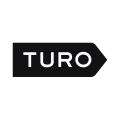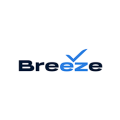The 4th of July holiday is a time for celebrations with family and friends, cookouts, and travel. The latter could be a record. Travel publication AAA predicts that 70.9 million Americans will travel 50 miles or more from home over the U.S. Independence Holiday weekend, making it one of the busiest ever.
With rising travel comes the potential for growth for private companies in the travel sector. And new entrants are revolutionizing the space as we know it. Breeze Airways, travel-tech company Hopper, and car-sharing firm Turo have emerged as leading innovators.
Breeze Airways takes off
Breeze Airways has been rapidly expanding its network of service locations. The emerging private airline carrier has differentiated itself by connecting travelers with underserved locations in the U.S. Breeze Airways’ founder and CEO, David Neeleman is no stranger to the airline industry. The series entrepreneur previously founded Morris Air, WestJet, JetBlue, and Azul Linhas Aereas.
Founded in 2017, the airline began its first service in May 2021 according to its website. The company avoids major hubs in large metropolitan areas and favors secondary airports with less traffic and less travel times. Its customizable options compete with traditional airlines with seamless booking, no change or cancellation fees, reusable flight credits of up to 24 months, and family travel options.
In 2024, Breeze announced the addition of 13 new airports and 25 new routes, bringing its total to 150 routes between 49 cities in 27 states. At the same time, the airline introduced a first-class service to attract a broader passenger base. The Salt Lake City-based company claimed its first full month of profitability in March 2024.
Beeze’s Forge Price™ is $540.11 as of June 17, 2024, which implies a valuation of $1.19 billion. Its key investors include Aries Capital Partners, BlackRock, Knighthead Capital Management, and Sandlot Capital, among others.
Travel application Hopper expands its offerings
There certainly is no shortage of apps to help you plan the perfect vacation or business travel experience. But Hopper has quickly innovated its offerings to stay ahead of the competition.
Founded in 2007, the company is a mobile-first application designed to help its users book discounted airfare, hotels, car rentals, and short-term home rentals. One of its key differentiators is the app’s ability to predict future price and feature fluctuations for its users, according to its website. The Montreal-based private company generated $700 million in revenue for 2023, a 40% increase over the prior year according to the Business of Apps publication.
In addition to serving its nearly 100 million users globally, the travel company also provides business services. In September of 2023, the company announced a rebranding of its B2B services, named Hopper Technology Solutions (HTS). Through its solutions technology, other enterprises can connect with customers for personalized merchandising and other fintech solutions that aid the travel experience.
In a press release from the company, its President and Co-Founder Dakota Smith explained, “While the Hopper mobile app is growing rapidly, HTS comprises over half our company’s revenue just a year and a half after launching, and by next year it’s expected to account for two-thirds of our business.”
According to the company, Hopper closed its last Series G funding round of $175 million in August 2021. Its investors have included GPI Capital, WestCap, GS Growth, and Glade Brook Capital Partners, among others.
Turo transforms the car rental industry
Founded in 2009, Turo is revolutionizing the car rental service for travelers. The San Francisco-based company provides peer-to-peer car sharing across the U.S., Canada, and Europe. What’s more, users who lend their vehicles can generate income from their cars while they’re not using them.
In March of 2024, Turo’s CEO Chuck Fisher explained to Forbes that the private company’s net revenue from 2021 to 2023 had grown nearly 88% to $879 million. Fisher added that the company has been profitable since that time and has even filed to go public.
In 2019 Turo closed a Series E funding round of $250 million. That same year, Turo acquired Britain’s easyCar Club and in 2022, the company acquired France’s OuiCar, as part of its expansionary plans in the European market.
Turo’s Forge Price™ is $18.90 as of June 17, 2024, which implies a valuation of $2.32 billion. Turo has a notable list of investors that includes Google Ventures, Kleiner Perkins, Allen & Company, General Motors Ventures, and Mercedes-Benz Group AG.







